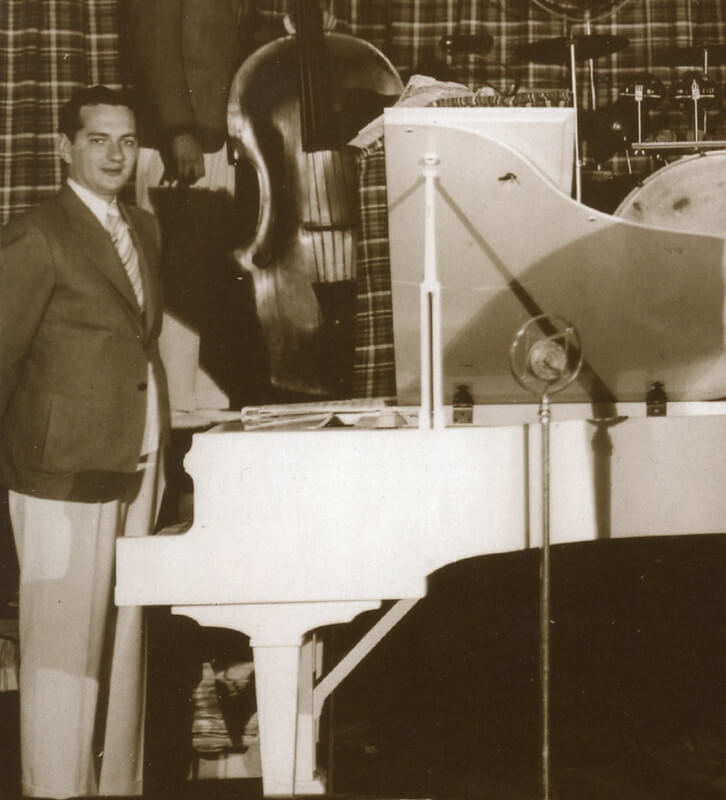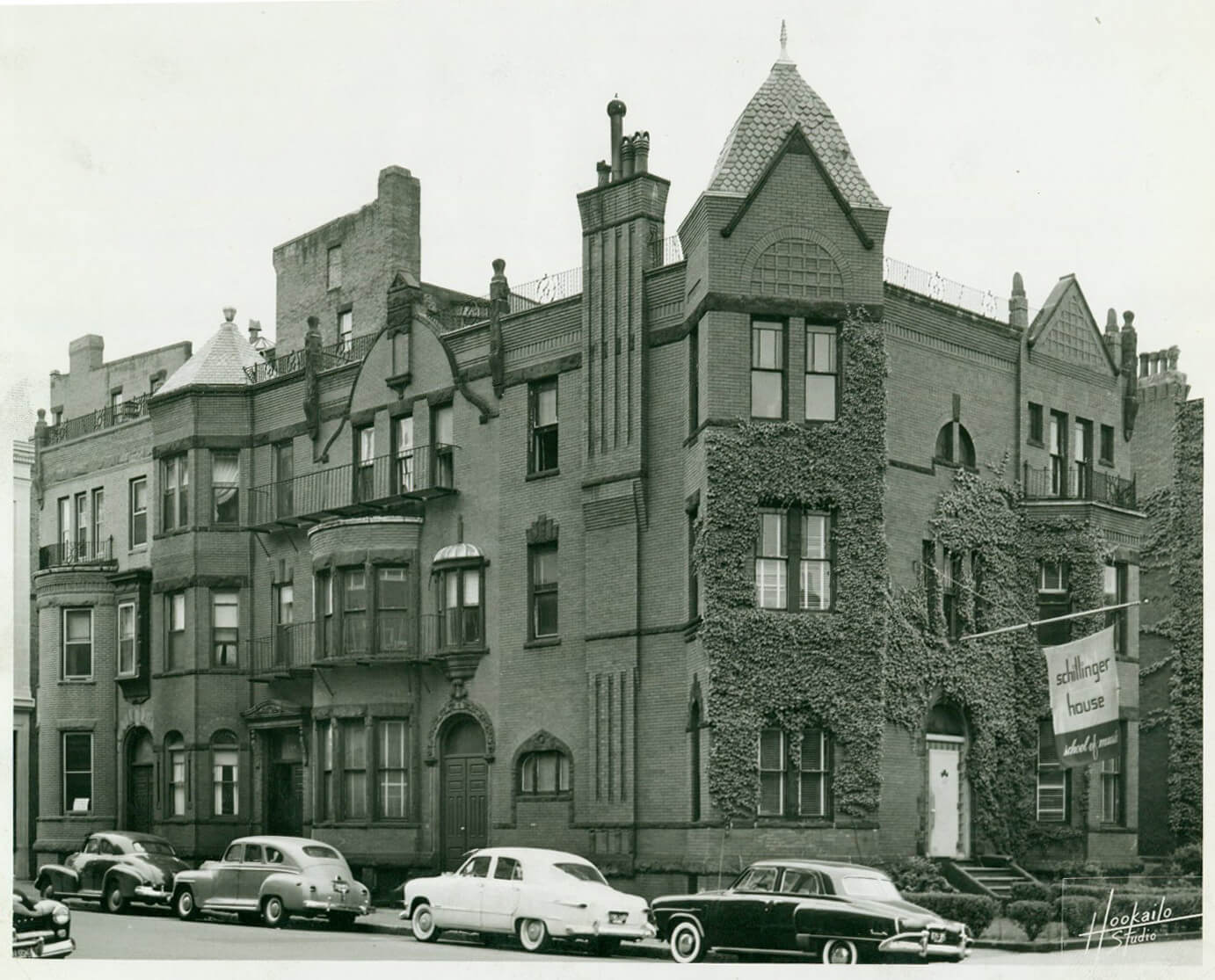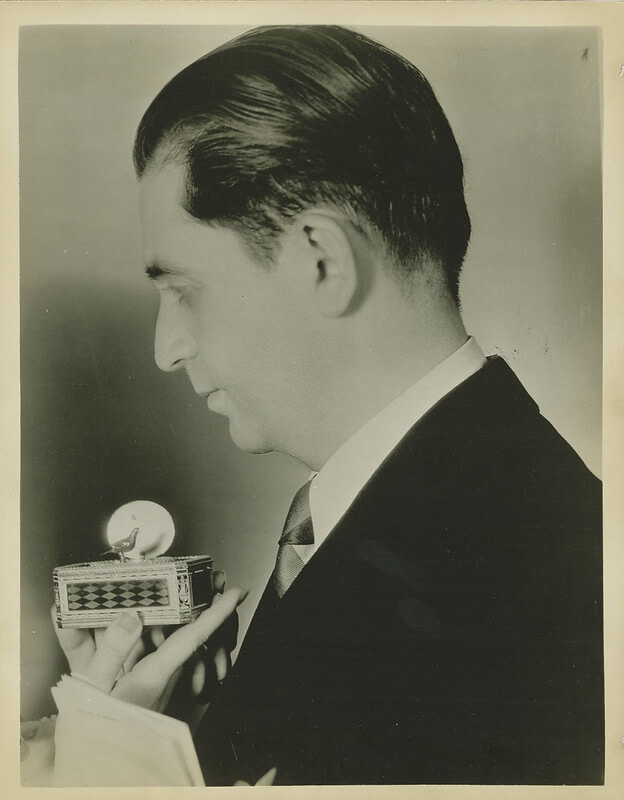Lawrence Berk
Lawrence Berk grew up in the West End, on the north slope of Beacon Hill, and founded the Berklee School of Music after pursuing his passion for music from a young age.
Lawrence Berkowitz was born in 1908 to Louis Berkowitz and Kate Turgel, Russian Jewish immigrants living on the north slope of Beacon Hill. Louis was a tailor at the North End coat shop owned by Lawrence’s great-grandfather, Morris Berkowitz. As a teenager, Lawrence was a talented piano player and joined the orchestra at the Wendell Phillips School in the West End. When Berkowitz attended Boston English High School, also in the West End, he often led the school orchestra at the encouragement of his teachers. While in junior high and high school, Berkowitz also played in nightclubs for dance orchestras. After graduating from English High in 1927, Berkowitz pursued an engineering degree at MIT and continued with nighttime music gigs to pay for tuition and other expenses. He often studied for class during breaks between performances, and earned a reputation as “best dressed” on campus because he frequently went to class in the tuxedo he wore during a performance the previous night.
When Berkowitz graduated in 1932, he moved to New York after facing difficulties with finding an engineering job during the Great Depression. In New York, he got hired by Joe Rines, whom Berkowitz played with in Boston, as a musician for the Iodent Toothpaste Radio Show. Berkowitz went on to arrange music for CBS and NBC’s radio programs. He married Alma Shlager in 1937 and moved with her to Boston in 1939 after securing an engineering job at Raytheon. At Raytheon, Berkowitz worked on the mechanical designs of radio receivers, a job which not only fit his engineering degree but also overlapped with his knowledge of radio as a musician. Berkowitz changed his last name to Berk in 1941, and later worked as a naval architect at the Boston Navy Yard during World War 2. Berk left Raytheon in 1945 to commit fully to his passion for music, which led to his founding of the Schillinger School in Boston’s Back Bay. The school was named for Joseph Schillinger, the Russian immigrant who created a unique theory of music composition involving mathematical principles. The “Schillinger system,” which included graphs in addition to basic tenets of algebra, allowed composers to produce complex combinations of pitch and rhythm. Berk worked with Schillinger himself during his time in New York, and was one of just twelve individuals Schillinger permitted to teach his system.
The Schillinger School focused primarily on jazz, dance, and radio music, and saw enrollment numbers increase particularly due to the G.I. Bill allowing former servicemen to attend college for free. In 1954, reflecting the fact that the school no longer taught just the Schillinger system, Berk changed the name to “Berklee School of Music.” ‘Berklee’ was a play on words, flipping the first and last name of his son, Lee Eliot Berk. Lee Berk was the second president of Berklee (Lawrence being the first) from 1979 to 2004, and he led initiatives to expand the college’s curriculum to include music therapy, business, and technology.
Lawrence Berk died in 1995 at the age of 87, but his legacy remains today as one of the most talented musicians to come out of the old West End.
Article by Adam Tomasi
Source: West End Museum (exhibit panels); Berklee College of Music (Schillinger System; Lee Eliot Berk); The Buffalo News










